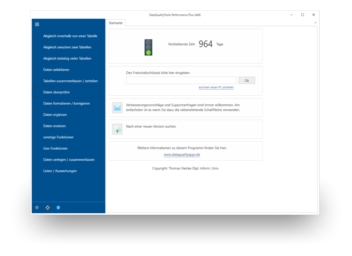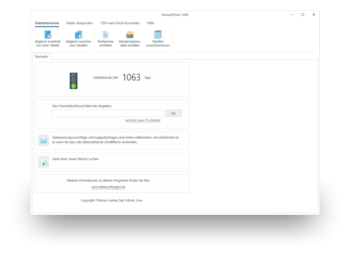Regardless of the cost savings, and of the fact that already for image reasons, one should respect the fact that some people do not wish to be solicited, advertising per telephone and email is only allowed in most countries when the addressees have explicitly consented to receiving this advertising. In order to limit the legal risks of database marketing campaigns and legal costs thereof, the use of Robinson lists is virtually an obligation. Robinson lists are managed by the inter-trade organizations of the direct marketing companies and/or by consumer protection offices. Entries in these Robinson lists are free of charge. Attempts to sell paying entries for this purpose are always to be considered untrustworthy.
Here are the websites of selected Robinson Lists worldwide:
- Germany: robinsonliste.de or ichhabediewahl.de
- Austria: Fachverband Werbung & Marktkommunikation or ECG-Liste
- Switzerland: SDV-Konsumenteninfo
- France: Union Française du Marketing Direct
- Italy: Registro Pubblico delle Opposizioni
- Belgium: robinsonlist.be
- Netherlands: Bel-me-niet Register
- Spain: listarobinson.es
- United Kingdom: UK Mailing Preference Service or Telephone Preference Service
- USA: National Do Not Call Registry
- Canada: Canadian Do Not Call List
- Australia: Do Not Call Register
- New Zealand: New Zealand Marketing Association's Do Not Call Register
Furthermore, you should also maintain and use your own company-internal black lists. These should include the date of and reason for blocking in addition to the blocked address. Among others, the following entries can be included in these lists:
- Rival businesses, then why should you spend money to inform the competitors about your own products?
- Addresses of people and companies that contact you following an advertising campaign and do not wish to receive anymore advertising.
- Addresses from advertising letters that could not be delivered and other out-dated addresses, so you can avoid contacting them unnecessarily at a later date.
- Addresses from people and companies with whom there have been problems with the payment of invoices in the past and should no longer be supplied.
Black lists can be processed with tools such as DataQualityTools or DedupeWizard, available at www.DataQualityApps.com . The error-tolerant deduplication supported by these programs ensures that blocked addresses are recognised as such even when they have been recorded differently in the black list than in the list of addresses to be solicited.
You can read about how to process Robinson lists with the DataQualityTools in the article 'Processing black lists with DataQualityTools'.

